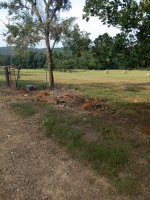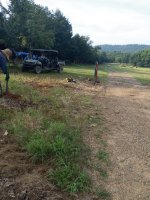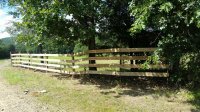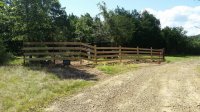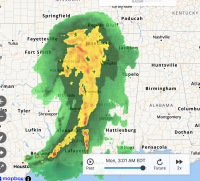- Thread starter
- #1,251
Senile_Texas_Aggie
Herd Master
All,
It has been awhile since I last posted a summary of the books we have read -- I think before I took a break from BYH. So this post will be a lengthy one for which I apologize, as we have read numerous books in that time. All but one of the books we read were nonfiction, so if you only interested in fiction, then you can certainly skip this post.
Maybe You Should Talk to Someone by Lori Gottlieb.
This is a book about a psychological therapist and the experiences she had with her clients, the events in her own personal life, and her need to seek the assistance of a therapist of her own. An interesting look into the life of a therapist.
Wholly Unravelled by Keele Burgin
This is a book about a young woman who grew up in a charismatic cult branch of a well known church denomination (I won't say which one). Her father was quite abusive toward the author when she was growing up and this had a really bad impact on her. After she left home, she went wild, went deeply into debt, then stole one of her sisters' identities, and ran up more debt. When she finally hit bottom, she decided to go to a sanctuary run by the same church denomination, staying there at the sanctuary for about a year. When she finally decided to leave the sanctuary, when her father insisted that she move back home, she said no, and left to live a more wholesome life on her own.
The Elephant in the Brain by Kevin Simler and Robin Hansin
The title comes from the phrase "the elephant in the room". The authors make the case that for the brain, the motives we have for what we say and do all boil down to self-interest. Food for thought.
The Bride Test by Helen Hoang
This is a novel about a mother of Vietnamese heritage who travels to Vietnam to look for a woman to be a wife for her younger son, who has Aspergers, and has never had a date with a girl. The mother finds a suitable woman and pays for her to come to America to get to know her son. There is conflict and then a happy ending.
Rising Out of Hatred -- the Awakening of a Former White Nationalist by Eli Saslow
This book is about David Roland Black, son of Don (?) Black, a former KKK grand wizard and founder of the white supremacist web site Stormfront. David grew up and became active in the group, doing web broadcasts with his father. Things changed for David when he left home to go to college. There he became friends with a Jew and two folks from South America, as well as a young woman from Ohio. As they continued to talk about things, David SLOWLY began to question his own beliefs about white nationalism. His friends helped provide him with sources of information that refuted the claims of white nationalism. By the time he graduated from college, he had abandoned his white nationalist beliefs and went on to graduate school.
Thinking in Bets by Annie Duke
This is a book by a professional poker player, but is not about poker. Instead, it is about methods that poker players use to improve their play and how those methods can be used in ordinary life. One of her many points is to try to get as many diverse views as possible about decisions and the factors that go into the decision. Be ready to admit that the outcome may not be what is desired, but the important thing is to focus on the process, not the result. (Rising Out of Hatred is a good example of that in action.) And it is important to find colleagues to help you improve the process, colleagues that won't be sycophants but will challenge you with arguments and reasoning that are different from yours. It reminded me a lot of about groupthink and how to avoid it.
How to Change Your Mind by Michael Pollan
This book was nothing like what we expected. We read it based on it being recommended by one of our nieces. It is about how the use of psychedelic drugs can be used to treat different diseases such as anxiety and depression, but can also be used to assist in creativity. As we read this book I feared he would go into New-Agey things like chakras, auras, etc. While the author came close to that, for the most part he stayed on the rational neurologically based side of the discussion.
Heartland by Sarah Smarsh
This is a book about a young woman who grew up poor near Wichita KS and how almost all of her relatives on her mother's side of the family were poor, were often homeless, got pregnant at a young age, married abusive husbands, and what all those combinations of factors did to perpetuate the family lifestyle. More importantly, she showed how society's attitudes toward those who are poor can often worsen the situation for those caught in the poverty cycle.
The Fifth Risk by Michael Lewis
This book is about different branches and departments of the U.S. government and what those agencies do. The title comes from an interview the author had with a former high ranking official in the Energy Dept with a deep understanding of nuclear weapons. In the interview, the author asked the official what he saw as the main risks facing the country. He named five, with the fifth risk being project management. The author covered the Energy Dept, the Agricultural Dept, and the Commerce Dept. He went into great depths to cover NOAA and the National Weather Service. He saw how time and time again ideology and corporate influences trumped good science since the Trump administration took over. While the Trump fans may find the author's findings off-putting, it jives with the above book Thinking in Bets and the need for having diverse points of view, and how the lack of such diverse points of view can lead to mediocrity at best and catastrophe at worst.
Senile Texas Aggie
It has been awhile since I last posted a summary of the books we have read -- I think before I took a break from BYH. So this post will be a lengthy one for which I apologize, as we have read numerous books in that time. All but one of the books we read were nonfiction, so if you only interested in fiction, then you can certainly skip this post.
Maybe You Should Talk to Someone by Lori Gottlieb.
This is a book about a psychological therapist and the experiences she had with her clients, the events in her own personal life, and her need to seek the assistance of a therapist of her own. An interesting look into the life of a therapist.
Wholly Unravelled by Keele Burgin
This is a book about a young woman who grew up in a charismatic cult branch of a well known church denomination (I won't say which one). Her father was quite abusive toward the author when she was growing up and this had a really bad impact on her. After she left home, she went wild, went deeply into debt, then stole one of her sisters' identities, and ran up more debt. When she finally hit bottom, she decided to go to a sanctuary run by the same church denomination, staying there at the sanctuary for about a year. When she finally decided to leave the sanctuary, when her father insisted that she move back home, she said no, and left to live a more wholesome life on her own.
The Elephant in the Brain by Kevin Simler and Robin Hansin
The title comes from the phrase "the elephant in the room". The authors make the case that for the brain, the motives we have for what we say and do all boil down to self-interest. Food for thought.
The Bride Test by Helen Hoang
This is a novel about a mother of Vietnamese heritage who travels to Vietnam to look for a woman to be a wife for her younger son, who has Aspergers, and has never had a date with a girl. The mother finds a suitable woman and pays for her to come to America to get to know her son. There is conflict and then a happy ending.
Rising Out of Hatred -- the Awakening of a Former White Nationalist by Eli Saslow
This book is about David Roland Black, son of Don (?) Black, a former KKK grand wizard and founder of the white supremacist web site Stormfront. David grew up and became active in the group, doing web broadcasts with his father. Things changed for David when he left home to go to college. There he became friends with a Jew and two folks from South America, as well as a young woman from Ohio. As they continued to talk about things, David SLOWLY began to question his own beliefs about white nationalism. His friends helped provide him with sources of information that refuted the claims of white nationalism. By the time he graduated from college, he had abandoned his white nationalist beliefs and went on to graduate school.
Thinking in Bets by Annie Duke
This is a book by a professional poker player, but is not about poker. Instead, it is about methods that poker players use to improve their play and how those methods can be used in ordinary life. One of her many points is to try to get as many diverse views as possible about decisions and the factors that go into the decision. Be ready to admit that the outcome may not be what is desired, but the important thing is to focus on the process, not the result. (Rising Out of Hatred is a good example of that in action.) And it is important to find colleagues to help you improve the process, colleagues that won't be sycophants but will challenge you with arguments and reasoning that are different from yours. It reminded me a lot of about groupthink and how to avoid it.
How to Change Your Mind by Michael Pollan
This book was nothing like what we expected. We read it based on it being recommended by one of our nieces. It is about how the use of psychedelic drugs can be used to treat different diseases such as anxiety and depression, but can also be used to assist in creativity. As we read this book I feared he would go into New-Agey things like chakras, auras, etc. While the author came close to that, for the most part he stayed on the rational neurologically based side of the discussion.
Heartland by Sarah Smarsh
This is a book about a young woman who grew up poor near Wichita KS and how almost all of her relatives on her mother's side of the family were poor, were often homeless, got pregnant at a young age, married abusive husbands, and what all those combinations of factors did to perpetuate the family lifestyle. More importantly, she showed how society's attitudes toward those who are poor can often worsen the situation for those caught in the poverty cycle.
The Fifth Risk by Michael Lewis
This book is about different branches and departments of the U.S. government and what those agencies do. The title comes from an interview the author had with a former high ranking official in the Energy Dept with a deep understanding of nuclear weapons. In the interview, the author asked the official what he saw as the main risks facing the country. He named five, with the fifth risk being project management. The author covered the Energy Dept, the Agricultural Dept, and the Commerce Dept. He went into great depths to cover NOAA and the National Weather Service. He saw how time and time again ideology and corporate influences trumped good science since the Trump administration took over. While the Trump fans may find the author's findings off-putting, it jives with the above book Thinking in Bets and the need for having diverse points of view, and how the lack of such diverse points of view can lead to mediocrity at best and catastrophe at worst.
Senile Texas Aggie

